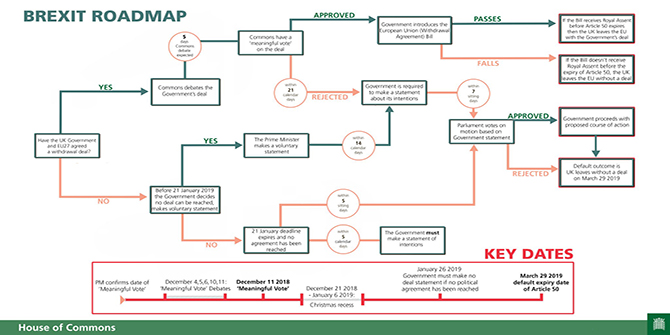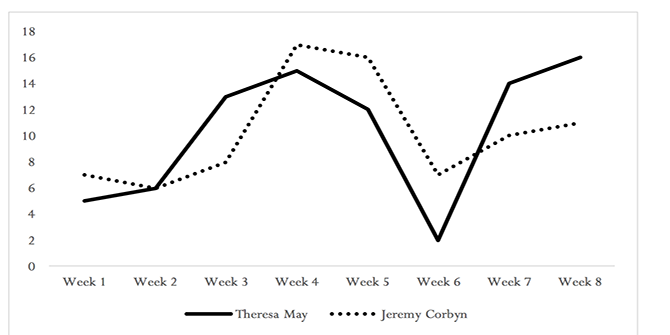 Why bother to vote in a safe seat, knowing your vote won’t make a difference to that constituency’s outcome? Jonathan Birch offers five key reasons why voting makes a difference to the legitimacy and stability of parliamentary democracy, even when individual seats don’t change hands.
Why bother to vote in a safe seat, knowing your vote won’t make a difference to that constituency’s outcome? Jonathan Birch offers five key reasons why voting makes a difference to the legitimacy and stability of parliamentary democracy, even when individual seats don’t change hands.
Elections can be pretty demoralising if you live in a safe seat. Where I live, in Mid Sussex, the Conservatives have a majority of almost 20,000 and have held the seat since its creation in 1974. The outcome is a foregone conclusion. Nothing happens, no one visits. You’re lucky to get a single leaflet.
If I lived in a marginal seat, I’d have a realistic chance, albeit a very small one, of making a difference. In the 1997 election, the seat of Winchester was decided by a margin of 2 votes, so it was literally true that every vote for the winning candidate mattered. This happens every now and then in marginals. But not in safe seats.
The Electoral Reform Society estimates that over half the seats in the UK are safe, in the sense that the outcome is not in any serious doubt. Ideally, we’d have some sort of proportional representation that would give my vote a chance of influencing who gets elected. But we don’t. I know that the outcome of the election will be unaffected by my vote.
So why vote at all? Why bother when you know your vote won’t matter? I’m sure this is one big reason why, in every election, around 30-40% of eligible voters don’t vote. But I think there are still reasons to vote, in spite of our flawed electoral system. Here are five.
1: The seat might not be as safe as you think
We live in volatile times. In the 2017 election, some seats turned out to be far more competitive than anyone expected. One example is Canterbury, which had been held by the Conservatives since its creation (as a constituency) in 1918. Propelled by the student population, Labour overturned a majority of almost 10,000 from two years earlier. In recent years, Labour has lost all of its ‘safe seats’ in Scotland with the rise of the Scottish Nationalists. In 2017, they even lost Kirkcaldy & Cowdenbeath, which had a majority of 23,000 in 2010. These things happen. But they don’t happen very often.
2: To influence your MP’s behaviour
Even in a safe seat, your vote counts towards the totals for each party, so it can make the seat a tiny bit safer or a tiny bit less safe. This makes no difference, you might think: the same MP is elected either way. But the behaviour of the MP will be influenced by the safety of their seat.
MPs in safe seats are under no serious pressure to deliver benefits to their constituents. They might be diligent MPs anyway, but they are not compelled to be. If they want, they can skip votes and debates and spend their time doing after-dinner speeches, serving on company boards, indulging in schemes and plots for their own advancement, and so on. By contrast, an MP defending a tiny majority has a motivation to work hard.
Moreover, an MP in a safe seat can also happily follow the party whip, even if the party line harms their own constituency. By contrast, MPs in marginals often feel much greater pressure to put their own constituents before party loyalty. Brexit has given us some interesting examples. Many of the most high-profile Labour rebels over Brexit—e.g. John Mann, John Woodcock, Ruth Smeeth, Gareth Snell, Caroline Flint, Jon Cruddas, Gloria De Piero—are in vulnerable, pro-Leave marginals.
It might occasionally be a good thing for an MP to feel able to oppose the interests of their constituents. Sometimes, we might want our MPs to vote in the national interest, setting aside the interests of the people of one small area. But this is the exception rather than the rule.
3: To make future elections more (or less) competitive
Parties invest their resources according to how competitive they think a seat is. In a safe seat, you will see few leaflets, few signs, few activists and probably no candidates. Once a party starts regarding a seat as a serious target, they start to have a chance of taking it, even though the incumbent party will also start campaigning more vigorously.
You might want your seat to be more competitive next time, if you oppose the incumbent party. Or you might want your seat to become less competitive, if you support the incumbent party. Either way, your vote will make a difference to the seat’s competitiveness, and that will make a difference to the atmosphere surrounding future elections.
4: To influence national vote share
The effect of your vote on the parties’ national vote share is minuscule. But you might conceivably tip your party over some significant threshold: from 39.9% to 40.0%, for example. Because we don’t have proportional representation, the national vote share officially makes no difference. But it does make a difference to the perceived legitimacy of a government. Governments in this country are usually elected with a minority vote share, but the smaller the minority, the worse this looks. When Labour was elected in 1997 on a 43% vote share, I don’t remember anyone complaining about their legitimacy or using the result as an argument for electoral reform. But when they were re-elected in 2005 on a 35% vote share (a margin of victory of less than 3%), people did complain, and it did strengthen the argument for electoral reform.
5: To help keep democracy alive
Turnout matters because it affects the legitimacy and stability of parliament, the government, and all the institutions of a democracy. Imagine turnout fell to 35%. What kind of democracy would we have then? What sort of democratic mandate could a government claim for doing anything? The overwhelming message from a general election with a 35% turnout is that democracy is in trouble, and its institutions and parties are not perceived as legitimate. It would be a perilous situation for the whole country.
This isn’t hypothetical: it’s been the actual situation for a long time in elections to the European parliament. One of the problems MEPs have faced for decades is that turnout in European elections is low. The result is that people don’t generally see their MEPs as representing them, or know much about them or what they do, allowing the idea of the EU as ‘undemocratic’ to take root.
So, in a vague kind of way, a vote for any party is a vote of confidence in parliamentary democracy itself. As an individual, your effect on turnout is even less significant than that on national vote share, so the effect is still minuscule. It also cuts both ways. You might want to undermine confidence in a parliament elected by an antiquated electoral system, which would be a reason not to vote. But if you still believe in parliamentary democracy despite everything, you can be comforted by the thought that your vote makes a tiny difference to its legitimacy and stability.
________________
 Jonathan Birch is Associate Professor of Philosophy at the LSE.
Jonathan Birch is Associate Professor of Philosophy at the LSE.
All articles posted on this blog give the views of the author(s), and not the position of LSE British Politics and Policy, nor of the London School of Economics and Political Science. Featured image credit: Pixabay/Public Domain.







In Warwickshire Stratford upon Avon, our choices are as usual but, Conservative always win, so what is the point from myself and husband. Waste of time, effort. Don’t stand a chance to change. There should be proportional representation. Otherwise it is not a fair vote. More people vote one party than another, then they should win, Not as it is more people in a county vote a party. This is totally NOT democratic. We are still hovering, why bother??????
It’s also the case that votes for unsuccesful candidates can directly affect whether those candidates get their £500 election deposits back. Candidates must receive 5% of the votes cast in order to get their deposits back, so even in a safe seat you can probably find a candidate who might feasibly get slightly above or below that amount, with your vote having a much larger effect on that outcome than it does on the foregone conclusion of who gets the most votes.
“The seat might not be as safe as you think” Quite so. John Cleese looked pretty silly after posting this tweet https://twitter.com/johncleese/status/866188904814260226 : (Remember Kensington and Chelsea went Labour with a tiny majority after several recounts, after being one of the safest Tory seats in the country.) In the unlikely event that Mr Cleese is reading this then I would like thank him for not deleting the tweet and preserving his humiliation for posterity, as a perfect argument for USING YOUR VOTE.
Also exercising your right (obligation?) to vote gives you ownership of the result – if you voted for the party that forms the government you own in a small way the successes and failures of that government and are more invested in it and holding it to account; if you voted for another party you may loathe the outcome but have the reassurance that you did what you could to prevent it and can feel rightfully entitled to criticize and complain about any governmental failures.
Very clear and very well said.
One could also say that voting – even in a safe seat – simply honours all those throughout history who fought and sacrificed to ensure that we each have a vote.
It’s a precious right.
Use it